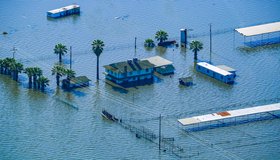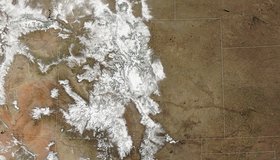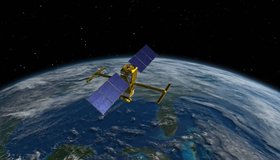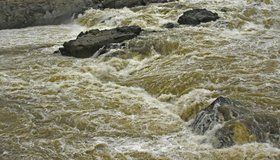
California Zombie Lake Turned Farmland to Water. Is it now Gone for Good?
Resurrected for the first time in decades by an epic deluge of winter rain and snow, by spring the lake covered more than 100,000 acres, stretching over cotton, tomato and pistachio fields and miles of roads.

Snowstorm Coats the Rockies
A potent storm pushed snowpack levels above normal across Colorado.

Storms Boost Forecasted California Water Supply
California's State Water Project has been focused on maximizing the capture and storage of water from this winter’s storms.

NASA Sees Spike in 2023 Sea Levels Due to El Niño
A long-term sea level dataset shows ocean surface heights continuing to rise at faster and faster rates over decades of observations.

World Water Day: Water for Peace
This year’s theme, “Water for Peace,” encourages the world to focus not only on the conflicts, but also on how water can be at the center of peacebuilding.

Webinar: Accessing Data for World's Water with NASA's SWOT Mission
Learn how to discover, access, and use Surface Water and Ocean Topography (SWOT) mission data and how these data could lead to new, innovative science and applications in the world of water.

US, Germany Partnering on Mission to Track Earth’s Water Movement
The Gravity Recovery and Climate Experiment-Continuity mission will extend a decades-long record of following shifting water masses using gravity measurements.

What’s Worse Than a Flood? A Debris Flow
While flood flows are dominated by water, debris flows are a slurry of a lot of things, including boulders.

Improving Salmon Habitat and Maintaining Hydroelectric Production in the Columbia River
Without more cool places for migrating salmon to rest as they move through the river, these iconic species could go extinct in the Columbia in as little as two decades.

Climate Change Weakening River Seasonality in North
Seasonal flow variability is decreasing as climate change alters Earth’s systems, creating challenges for water management.